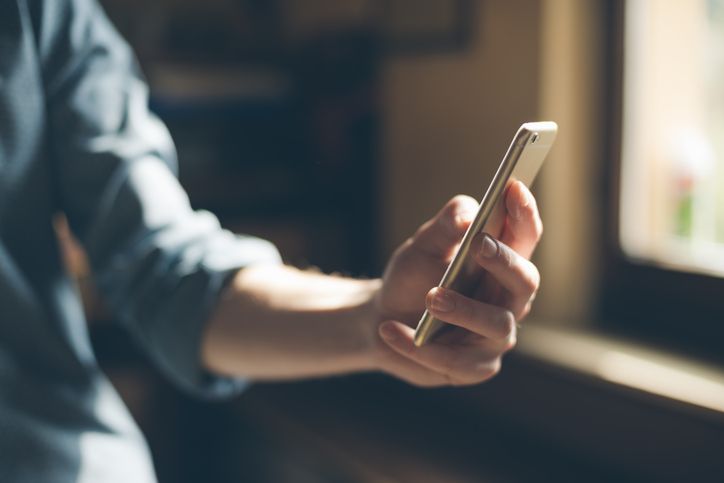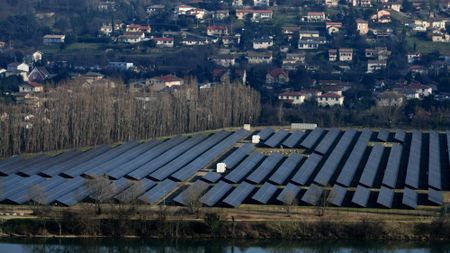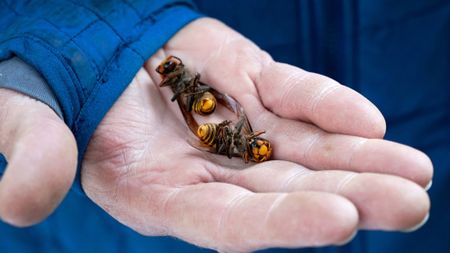Scientists finally agree that your phone won't give you cancer

Good news for the tech junkies out there: Experts agree that cell phones do not cause cancer. At least, not in humans.
The National Toxicology Program, which studies all kinds of possible causes for disease, has been conducting studies on mice and rats "to help clarify any potential health risks" that might result from the radiation from cell phones. In "the highest of doses for the longest periods of time," cell phone radiation might pose a cancer risk to rats, NBC News reported.
But the rest of us can probably stop worrying about it, because the rodents were exposed to "much greater" levels of radiation, and for longer periods of time, than humans would experience with "even the highest level of cell phone usage," an NTP scientist told NBC News. Beyond that, the studies only showed any type of change in rats; mice did not seem to develop any clear adverse effects from the radiation exposure.
Subscribe to The Week
Escape your echo chamber. Get the facts behind the news, plus analysis from multiple perspectives.

Sign up for The Week's Free Newsletters
From our morning news briefing to a weekly Good News Newsletter, get the best of The Week delivered directly to your inbox.
From our morning news briefing to a weekly Good News Newsletter, get the best of The Week delivered directly to your inbox.
Dr. Otis Brawley, a physician with the American Cancer Society, told NBC News that these results won't reassure everyone. "The folks who really want cell phones to be harmful are going to say that it's harmful," he explained, but "if there is a harm, it is minimal." Read the full studies here.
Sign up for Today's Best Articles in your inbox
A free daily email with the biggest news stories of the day – and the best features from TheWeek.com
Shivani is the editorial assistant at TheWeek.com and has previously written for StreetEasy and Mic.com. A graduate of the physics and journalism departments at NYU, Shivani currently lives in Brooklyn and spends free time cooking, watching TV, and taking too many selfies.
-
 Following the Tea Horse Road in China
Following the Tea Horse Road in ChinaThe Week Recommends This network of roads and trails served as vital trading routes
By The Week UK Published
-
 Crossword: March 30, 2025
Crossword: March 30, 2025The Week's daily crossword
By The Week Staff Published
-
 Sudoku hard: March 30, 2025
Sudoku hard: March 30, 2025The Week's daily hard sudoku puzzle
By The Week Staff Published
-
 Dark energy may not doom the universe, data suggests
Dark energy may not doom the universe, data suggestsSpeed Read The dark energy pushing the universe apart appears to be weakening
By Peter Weber, The Week US Published
-
 Pharaoh's tomb discovered for first time in 100 years
Pharaoh's tomb discovered for first time in 100 yearsSpeed Read This is the first burial chamber of a pharaoh unearthed since Tutankhamun in 1922
By Peter Weber, The Week US Published
-
 Scientists report optimal method to boil an egg
Scientists report optimal method to boil an eggSpeed Read It takes two temperatures of water to achieve and no fancy gadgets
By Peter Weber, The Week US Published
-
 Europe records big leap in renewable energy
Europe records big leap in renewable energySpeed Read Solar power overtook coal for the first time
By Peter Weber, The Week US Published
-
 Blue Origin conducts 1st test flight of massive rocket
Blue Origin conducts 1st test flight of massive rocketSpeed Read The Jeff Bezos-founded space company conducted a mostly successful test flight of its 320-foot-tall New Glenn rocket
By Peter Weber, The Week US Published
-
 US won its war on 'murder hornets,' officials say
US won its war on 'murder hornets,' officials saySpeed Read The announcement comes five years after the hornets were first spotted in the US
By Peter Weber, The Week US Published
-
 Dark energy data suggest Einstein was right
Dark energy data suggest Einstein was rightSpeed Read Albert Einstein's 1915 theory of general relativity has been proven correct, according to data collected by the Dark Energy Spectroscopic Instrument
By Peter Weber, The Week US Published
-
 New DNA tests of Pompeii dead upend popular stories
New DNA tests of Pompeii dead upend popular storiesSpeed Read An analysis of skeletal remains reveals that some Mount Vesuvius victims have been wrongly identified
By Peter Weber, The Week US Published